8 Thoughtful Quotes By Franco Modigliani
Franco Modigliani was a renowned Italian economist, and served as a academician at UIUC, Carnegie Mellon University. In 1985, he was awarded the ‘Nobel Memorial Prize’ in Economic Sciences. His passion for the subject led him to formulate any theories. Though he was born in Italy, most of his life was spent in America, where is taught and remained engaged in work and research related to economics. Being an anti-fascist, he became an active participant in various resistance movements. His works, thoughts, theories, lectures and life has also inspired several economics aspirants. Read through the corpus of quotes and sayings by Franco Modigliani which have been extracted from his lectures, work, thoughts, theories, teachings and life. Zoom through the quotes and thoughts by Franco Modigliani.
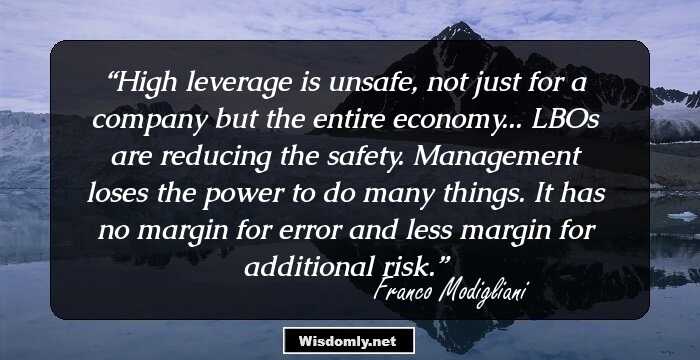
High leverage is unsafe, not just for a company but the entire economy... LBOs are reducing the safety. Management loses the power to do many things. It has no margin for error and less margin for additional risk.
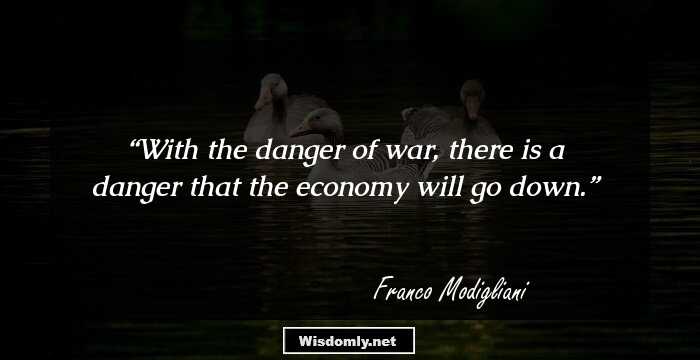
With the danger of war, there is a danger that the economy will go down.
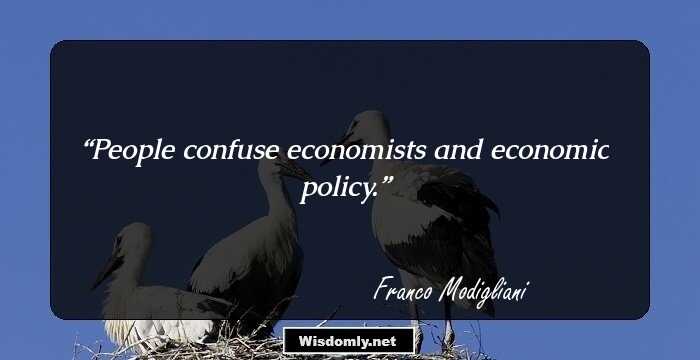
People confuse economists and economic policy.
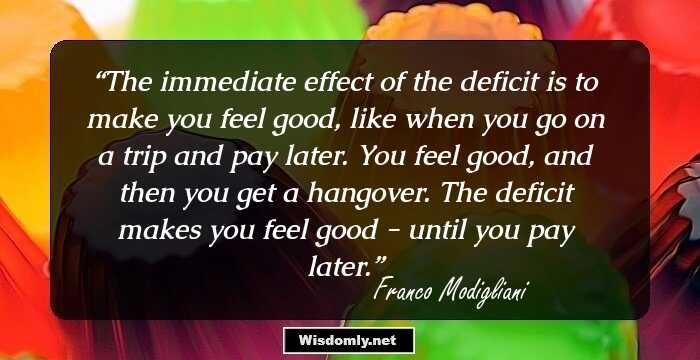
The immediate effect of the deficit is to make you feel good, like when you go on a trip and pay later. You feel good, and then you get a hangover. The deficit makes you feel good - until you pay later.

I am a believer in cooperation.
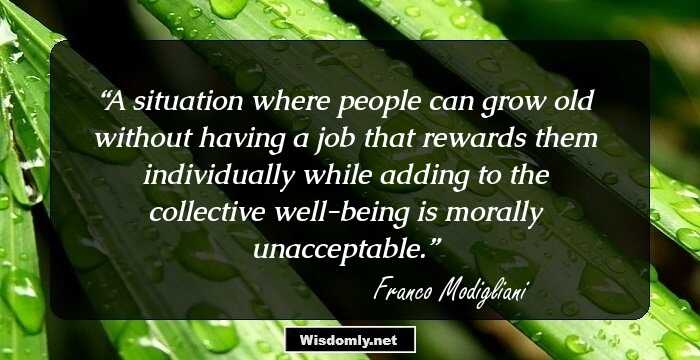
A situation where people can grow old without having a job that rewards them individually while adding to the collective well-being is morally unacceptable.
Economists agree about economics - and that's a science - and they disagree about economic policy because that's a value judgment... I've had profound disagreements on policy with the famous Milton Friedman. But, on economics, we agree.
Is it important that the rent of land be retained as a source of government revenue. Some persons who could make excellent use of land would be unable to raise money for the purchase price. Collecting rent annually provides access to land for persons with limited access to credit.










